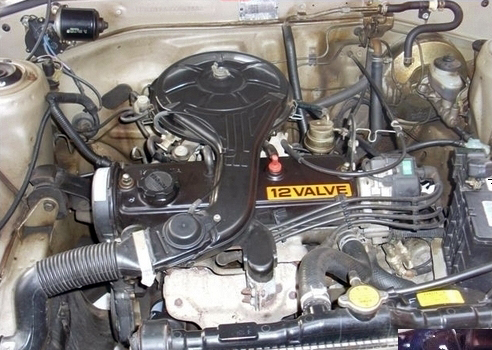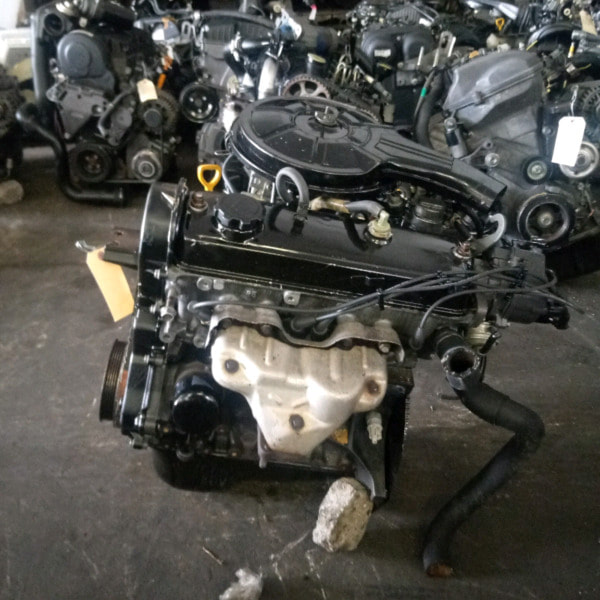Get Back when driving: Toyota Tazz Engine for Sale, Finest Deals Await
Get Back when driving: Toyota Tazz Engine for Sale, Finest Deals Await
Blog Article
Engine Acquiring Specialist Tips on Selecting the Right Engine for Your Specific Needs
Choosing the right engine for your particular needs involves an intricate interaction of aspects that go beyond simple horsepower numbers. By diving into the ins and outs of power versus performance, reviewing gas scores, and budgeting for long-term expenses, one can genuinely enhance their engine selection.
Power Vs. Effectiveness: Finding the Equilibrium

When choosing an engine, it is crucial to strike a balance between power and efficiency to meet your particular demands efficiently. Power describes the engine's capacity to produce energy for propulsion, establishing variables like acceleration, hauling capability, and general efficiency (Toyota Tazz Engine For Sale). On the other hand, effectiveness connects to how well the engine uses gas to generate power, influencing aspects such as fuel economic situation and ecological kindness
Attaining the ideal balance in between power and efficiency is vital because an engine that is too effective might take in too much fuel, causing greater operating expense and unneeded strain on the environment. On the other hand, an engine that focuses on effectiveness over power might result in slow-moving efficiency, specifically in requiring situations like lugging hefty lots or driving uphill.
To make an informed choice, take into consideration factors such as your typical driving conditions, the designated usage of the car, and your personal preferences. By reviewing your priorities and needs, you can select an engine that strikes the perfect equilibrium in between power and efficiency, guaranteeing optimum performance while reducing environmental influence and operating expenses.
Recognizing Engine Size and Kind

Typical engine types consist of inline engines, V engines, and rotating engines, each with its special advantages and drawbacks. Understanding the interaction in between engine dimension and type is vital in picking an engine that straightens with your details requirements and priorities, whether it be power, efficiency, or an equilibrium of both.
Consider Your Lorry's Demands
Considering your automobile's demands is a fundamental action in the engine choice procedure to make sure optimal efficiency and performance. It is important to review aspects such as the intended use the vehicle, its weight, lugging capacity, and gas effectiveness demands. As an example, if you are looking for an engine for a durable vehicle that will be made use of for towing, you will certainly need an effective engine with high torque capabilities. On the various other hand, if you are choosing an engine for a portable automobile primarily utilized for city travelling, fuel effectiveness might be an extra vital variable to think about.

Reviewing Gas Performance Scores
Examining gas effectiveness scores is an essential aspect of selecting the right engine for your lorry, ensuring price financial savings and ecological sustainability. Gas effectiveness ratings, typically determined in have a peek at these guys miles per gallon (MPG) for gasoline engines or kilowatt-hours per 100 miles (kWh/100 miles) for electric engines, show just how far a car can travel on a specific quantity of gas or electrical energy. Greater MPG or lower kWh/100 miles worths indicate a lot more effective engines, translating to lowered gas expenses and lower carbon exhausts.
Furthermore, contrast different engine options within the exact same vehicle class to recognize the most cost-effective selection. Factors such as engine dimension, weight, aerodynamics, and hybrid or electrical capabilities can all influence gas efficiency.
Budgeting for Long-Term Expenses
Strategically preparing for lasting expenditures is necessary when selecting an engine, making certain economic sustainability over the lorry's life expectancy. While the first acquisition price of an engine is a significant element, it is crucial to consider the lasting prices linked with upkeep, repair work, and fuel consumption.
Moreover, researching the schedule and expense of replacement components for the selected engine is important in spending plan preparation. Engines with readily offered and budget-friendly components can dramatically influence lasting upkeep expenses. Additionally, thinking about the engine's longevity and anticipated life expectancy can aid stay clear of unforeseen replacement prices in the future. By very carefully budgeting for these long-lasting expenses and factoring them right into the decision-making procedure, individuals can pick an engine that not only meets their instant needs yet also continues to be cost-efficient Discover More Here throughout its life expectancy.
Verdict
Finally, picking the best engine for your certain demands requires stabilizing power and efficiency, comprehending engine dimension and type, considering your car's needs, evaluating fuel effectiveness rankings, and budgeting for long-lasting prices. By carefully thinking about these variables, you can ensure that you select an engine that satisfies your demands and provides ideal efficiency for your car.
To better refine the choice process of an engine that strikes the ideal equilibrium in between power and performance, it is important to dig into the details of understanding engine size and type. Engine size refers to the total volume of air and fuel that can be pushed through the engine cylinders. Common engine types include inline engines, V engines, and rotary engines, each with its distinct advantages and drawbacks. Understanding the interplay between engine size and type is important in choosing an engine that aligns with your particular needs and priorities, whether it be power, efficiency, or a balance of both.
Fuel effectiveness scores, normally determined in miles per gallon (MPG) for gas engines or kilowatt-hours per 100 miles (kWh/100 that site miles) for electric engines, indicate how far a lorry can take a trip on a details quantity of gas or power.
Report this page